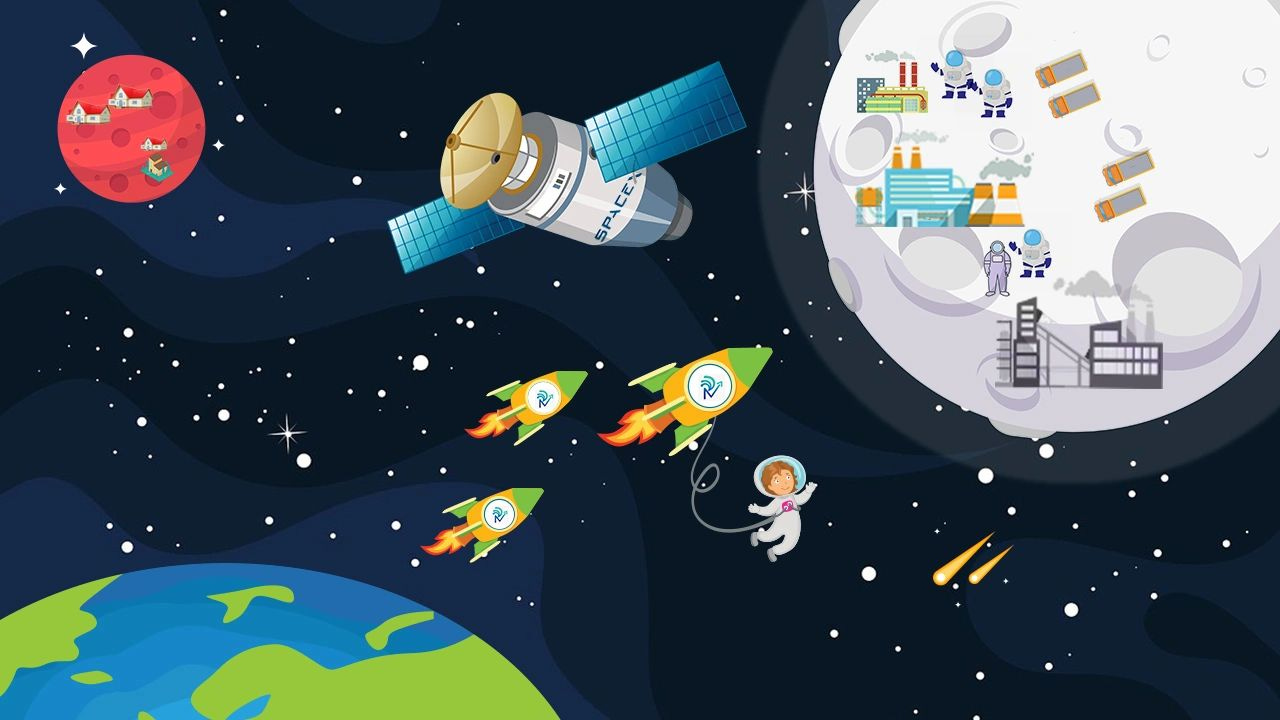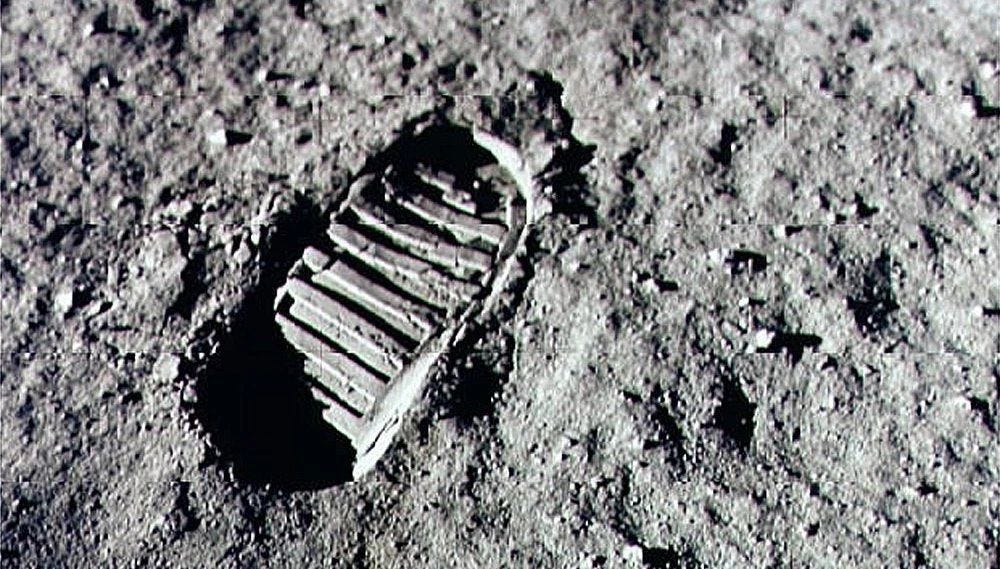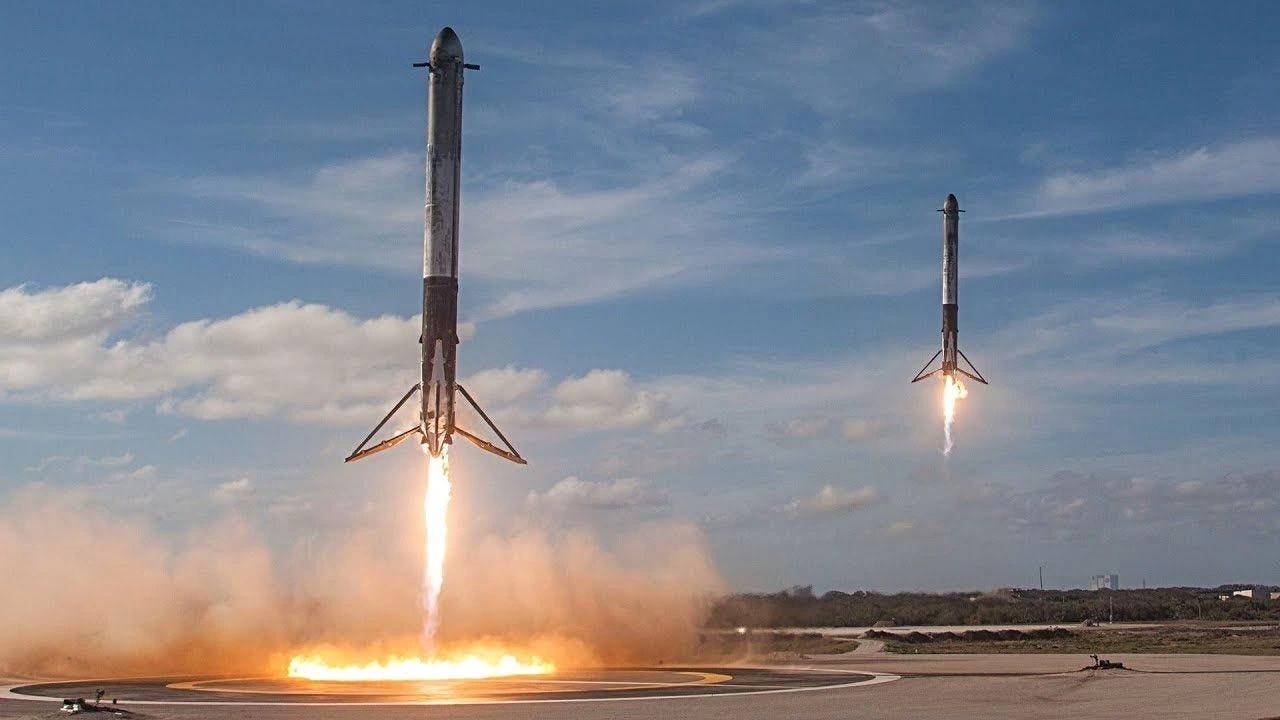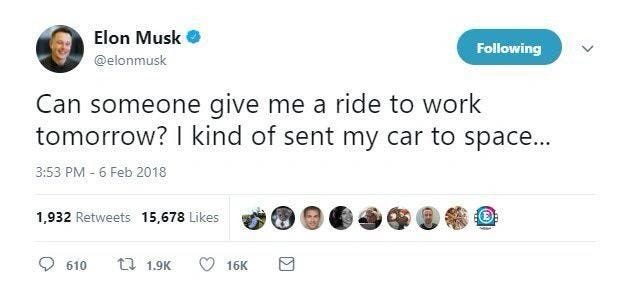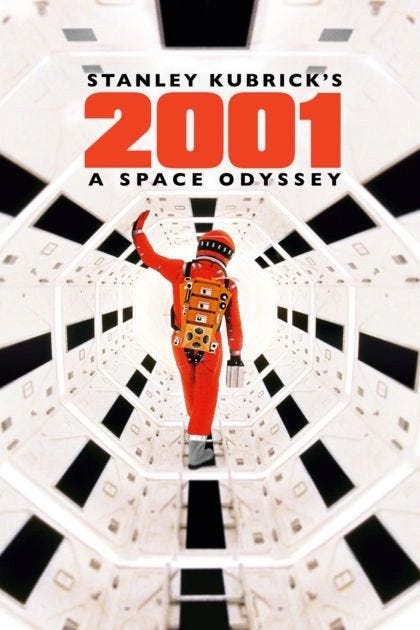The Economics of Space
This one is about hope :)
Picture of Earth taken on 14 Feb 1990, by NASA’s Voyager 1 at a distance of 6 billion kms from the Sun :
“Look again at that dot. That’s here. That’s home. That’s us. On it everyone you love, everyone you know, everyone you ever heard of, every human being who ever was, lived out their lives. The aggregate of our joy and suffering, thousands of confident religions, ideologies, and economic doctrines, every hunter and forager, every hero and coward, every creator and destroyer of civilization, every king and peasant, every young couple in love, every mother and father, hopeful child, inventor and explorer, every teacher of morals, every corrupt politician, every “superstar,” every “supreme leader,” every saint and sinner in the history of our species lived there—on a mote of dust suspended in a sunbeam.”
The immortal words of Carl Sagan, from his book "Pale Blue Dot". That obscure little white speck you see in the middle of all the nothingness is our home planet, Earth. Somewhere on that speck is us.
After the world came out of the throes of a short man with a funny moustache trying to establish his political supremacy in what was called the World War II (more like War of the Rich Brat Countries II), two superpowers emerged - The USA and the Soviet Union (Modern Day Russia + 14 other smaller countries).
The next 5 decades were marked by these Supreme Nations engaged in a battle for:
- Military Supremacy (Who got the Nuclear Chops);
- Ideological Supremacy (Capitalism vs. Communism);
- Intellectual Supremacy (in those days, a battle between Chess Champions Bobby Fischer from USA and Boris Spasky from the Soviet Union created the same palpable intense public hysteria that’s witnessed in an India/Pak Cricket WC match today).
And this war did not stop on land.
Space was the next battleground.
Space Wars
While the Cold War deserves a lengthy piece of its own (it is a story full of spies, betrayals, media, corporate and land tussles, and once when the world almost ended with the Cuban Missile Crisis), we are going to focus on the most fascinating and, to be honest, the most fruitful outcome of this War - The Space Race.
The Space Race was a decade-long battle between the USA and Soviet Union, in which both countries tried to one-up each other with their technological developments, aiming to establish their superiority in Space-flight. It began with the USSR launching the Sputnik 1, the first ever artificial Satellite from Earth in October 1957.

And thus began a series of back to back wins for the USSR, with them achieving a host of firsts including the Sputnik 2 - the first satellite to take a dog to space, the first mission to leave Earth’s Orbit with Luna 1 and the first probe to the Moon with Luna 2.
The most spectacular of these firsts was when the Soviets sent the first ever human to fly in space - Yuri Gagarin. It was an incredulous time for Soviet Space Flight.
But this did not bode well with our quintessential, chest thumping Americans.
And thus came the turning point of this exhilarating story - US President John F. Kennedy’s “Moon Speech” of 1961 - in which he vowed to put NASA astronauts on the Moon before the end of the decade.
“We choose to go to the moon in this decade and do other things, not because they are easy, but because they are hard." - JFK
The speech helped kick off NASA’s ambitious Apollo Program. While the Apollo program had its own astounding wins and irreparable losses (and deserves its own article) - it finally helped the Americans triumph over the Soviets in the Space Race - when NASA’s Apollo 11 Mission put the first humans on the Moon.
One small step for a man, one giant leap for mankind.
It was a truly astonishing time, with the entire world enamored with Space Exploration and what it could mean for us as a species. It was a world of “tomorrow”. We, as a race, were full of dreams. Inspired to craft a future we could be proud of.
We would have been on an exponentially higher spectrum of technological advancement, had the same rate of growth in Space Tech Development of the '60’s maintained over the decades that followed.
But all of the Space-flight advancement of the '60’s was catalysed by basic, raw, tribal instincts that are embedded deep within our genes. The want to be a part of a tribe and the want for that tribe to dominate another. The same instinct that drives the insane fandom of sporting teams across the globe.
“It was the best of times, it was the worst of times.” - Charles Dickens, A Tale of Two Cities.
So with the end of the Cold War (marked by the disintegration of the Soviet Union and the USA prima-facie emerging victorious) came the end of the era of rapid Space-Flight development. This marked the beginning of a decade-long slump in the advancement of Space Exploration.
Until...
Enter Elon Musk and Jeff Bezos
These modern day mythical creatures already have a cult-like following.
An explorer in the truest sense of the word, Elon Musk seeks to make space accessible for all. Of his most unorthodox and “crazy” dreams is to colonise Mars. Yes, this eccentric tweeter wants to die on the Red Planet (and not on impact).
But the journey to Mars is not an easy one. The first hurdle is mobility.
Apart from the fact that the Red Planet is ~150 million kms away (that's 3,750 times around the Earth), does not have an atmosphere and has temperatures which go down to -125 degrees F - the cost to send one probe here costs $74 mn. Now, a rocket costs $2.5bn (way more than the cost of a probe) and the fact that these rockets are like a one time use and throw thing don't really attract the best investors around the world.
Imagine if every time an airplane carried you from point A to point B, it would have to be discarded. If every journey would render it unusable. How much do you think it would cost the airlines, per passenger? The airlines would obviously have to charge the whole cost of the air-bus from you, making it un-affordable.
Travelling via air wouldn’t make economical sense if planes could only take off once; if they were not reusable.
That’s what the problem with rockets was. Rockets were not reusable. There was no way to make a rocket land back on earth once it went out into space. The rocket parts were doomed debris, floating around in endless Space.
This is a problem SpaceX and Musk solved. After three failed experiments with the Falcon launches, and the company almost going bankrupt, they were finally able to achieve what history will remember as the first stepping stone to colonising Mars. Falcon landed safely on a sea-pad in December 2015.
After successfully establishing that rockets could land back on Earth, The God of Nerds was not done yet.
He had another great idea.
Musk runs another company, Tesla Motors, which makes electric cars. Currently, it is the most valuable automobile company in the world (though, some people see it as a tech company, obsessed with self driving / autonomous cars).
What better way to market the car, than to put it on a rocket and launch it into space? That is exactly what Musk did. Take a look at this beautiful image of a Red Tesla Roadster orbiting in outer space.
All of this would satisfy a mere mortal. But not Musk.
The monopoly of NASA in space tech was dwindling. SpaceX made sure that it no longer existed.
On 30 May 2020, SpaceX launched two living humans into Space. They are safely docked into the International Space Station. Another first.
The gates to space-tourism are now open.
While Musk is a dreamer, there is another man wanting to dominate Space-commerce. His best known quote - “Your margin is my opportunity” goes to depict the aggression with which he and his company enter a market.
Competitors lose their sleep; investors want to hide their money and go to sleep. When he enters a market, he doesn't dominate it. He disrupts it.
Jeff Bezos has a very particular set of skills. Skills which he has acquired over a long and successful career, which have made him one of the richest men in human history.
Of those, the most important one is to see things in a long time frame. Not ten or fifteen years - centuries. And with that lens, he considers Blue Origin his most important project. Yes, this “pre-revenue,” cash burning company is more important to him than his trillion dollar behemoth Amazon. In fact, every year, Bezos sells a substantial chunk of his shares in Amazon to invest in Blue Origin. What drives him is not just the dream of a starry eyed boy who saw American footprints on the moon growing up, but also a very basic economic idea.
"We are building a road so your children can build the future." - on Blue Origin's website.
If you take human civilization’s current energy consumption and compound it at a conservative rate of 2%, there will come a point in a few hundred years when the entire Earth will have to be covered in solar cells to generate the energy required to feed its population.
Either that or human civilization will become a civilization of stasis. And that is not something worth looking forward to. Especially not when you have an 'innovate or die' mindset like Bezos'.
What if all of Earth could be reserved only for residential purposes? And all heavy manufacturing industries could move somewhere else? Somewhere in the skies. In Space. Woah!
Sounds like science fiction.
Sounds like Bezos.
Bezos’ Blue Origin aims to move all heavy manufacturing and warehousing to space (Talk about first mover advantage)! Interestingly, machines will not 'wear & tear' in zero-gravity (time to rethink the concept of depreciation?)
If Bezos has his way, soon the tags on all our favourite merchandise will say "Made in Space.”
When your gratification hungry mind forces you to click that “Track Your Order” button - you might end up seeing the “Entering Outer Earth Atmosphere” update.
Now that’s an economic future worth rooting for.
Why Space Exploration?
Humanity has a lot on it’s plate right now. Pandemics, climate change, poverty, illiteracy, gender and racial discrimination - the list goes on. Skeptics could question - is space exploration really worth our attention right now? Don’t we have bigger problems to solve? Does it make sense to spend billions of dollars without any predictability of returns in the near future?
When viewed through the lens of traditional investment frameworks, Space exploration is unlikely to fare well. Heck, most finance professionals would argue that Space exploration as an investment fails almost all the rules that decide whether an investment makes monetary sense or not (clearly, they have no imagination).
As Musk puts it, “When something is important enough, you do it even if the odds are not in your favour.”
You risk failure.
You tolerate failure.
You overcome failure.
When asked why he wanted to climb Mount Everest, the great British explorer George Mallory said, "Because it is there.” He was the first. And he died trying. We’ll never know whether he reached the summit. But we know he made the effort, in the hope to be ‘on top of the world.’
Humans are explorers. The fact that we have survived on a planet full of ferocious forces of nature is because we dared to explore.
Greek mythologists believe that when the Pandora’s box was opened on Earth, all the evil spirits of greed, jealousy, fear and revenge attached themselves to humans. The sadistic Gods left only one undying positive emotion - hope.
Against all odds, we hope. Hope is what binds our race together. And that’s what Space exploration offers in abundance - hope.
Dawn of a New Day
Thanks to these extraordinary men, now the question is no longer about "if" humans can conquer Space, but "when".
While us mortals worry about surviving the present, these demi-Gods are busy building a hitherto unimaginable future.
The economics have started making sense.
Soon, we'll be taking space vacations.
Soon, we'll have factories in space.
Soon, we'll be watching advertisements amongst the stars.
And soon, we'll become an inter-planetary species.
Until then, ReadOn.
Created by Karn Nahata and Shantanu Jain with love, passion and hope. If this write-up makes even one person interested in Space, even one person to sit back and comprehend about the future, our objective would have been fulfilled. And if that one person is you, we would love to hear from you. You can reach out to us on shantanu@readon.in and karn.nahata@gmail.com. Godspeed.
Thousands of readers get our daily updates directly on WhatsApp! 👇 Join now!
Noob's Corner
1. The Cold War (1945-1991)
The cold war started after the end of World War II. US and USSR partnered during WW-II to defeat the common enemy, Nazi Germany. But soon after, they had an ideological fallout. Since both countries had nuclear weapons, they did not engage in a one-on-one war. Instead, they waged war on the soils of other countries (proxy wars). US favoured the right-wing governments, that were pro-capitalism. USSR favoured the communist colonies and governments around the world. These were wars fought between other countries, but with each side getting support from a different superpower. Examples of proxy wars include the Korean War, the Vietnam War, the Yom Kippur War, and the Soviet Afghanistan War.
2. The Arms Race (Nuclear Arsenal)
As a result of cold war, the superpowers (US and USSR) got into an Arms Race - who has the bigger guns. Nuclear weapons (developed during WW-II) had the capability to destroy entire cities at one go. Till August 1949, USA was the only country with an atomic bomb in its arsenal. USSR made sure that the state of balance was restored. Now, since both countries had nuclear bombs, it would be MAD (Mutual Assured Destruction) to engage in a one-on-one war.
3. Capitalism vs. Communism
This is an age old battle between two different economic ideologies.
Capitalism believes in the supremacy of "capital," and that the prices of products and services be determined by "free market forces" of demand and supply. It emphasises on least government intervention. USA is a capitalist country.
Communism believes in the supremacy of a "community," and proposes that the Government should determine the prices of goods and services, what is to be produced, and how much should go to whom. Russia is a communist country.
4. Pandora's Box
"As per Greek mythology, Zeus gave Pandora a box (in ancient Greece this was called a jar) but warned her never to open it. Pandora, who was created to be curious, couldn’t stay away from the box and the urge to open the box overcame her. Horrible things flew out of the box including greed, envy, hatred, pain, disease, hunger, poverty, war, and death. All of life’s miseries had been let out into the world. Pandora slammed the lid of the box back down. The last thing remaining inside of the box was hope. Ever since, humans have been able to hold onto this hope in order to survive the wickedness that Pandora had let out.
'Pandora’s box' now means anything that is best left untouched, for fear of what might come out of it." - Greek Boston
For You to Read
1. Pale Blue Dot: A Vision of the Human Future in Space by Carl Sagan
2. Future of Humanity by Michio Kaku
3. Elon Musk: How the Billionaire CEO of SpaceX and Tesla is Shaping our Future by Ashlee Vance
4. The Hitchhiker's Guide to the Galaxy by Doughlas Adams

